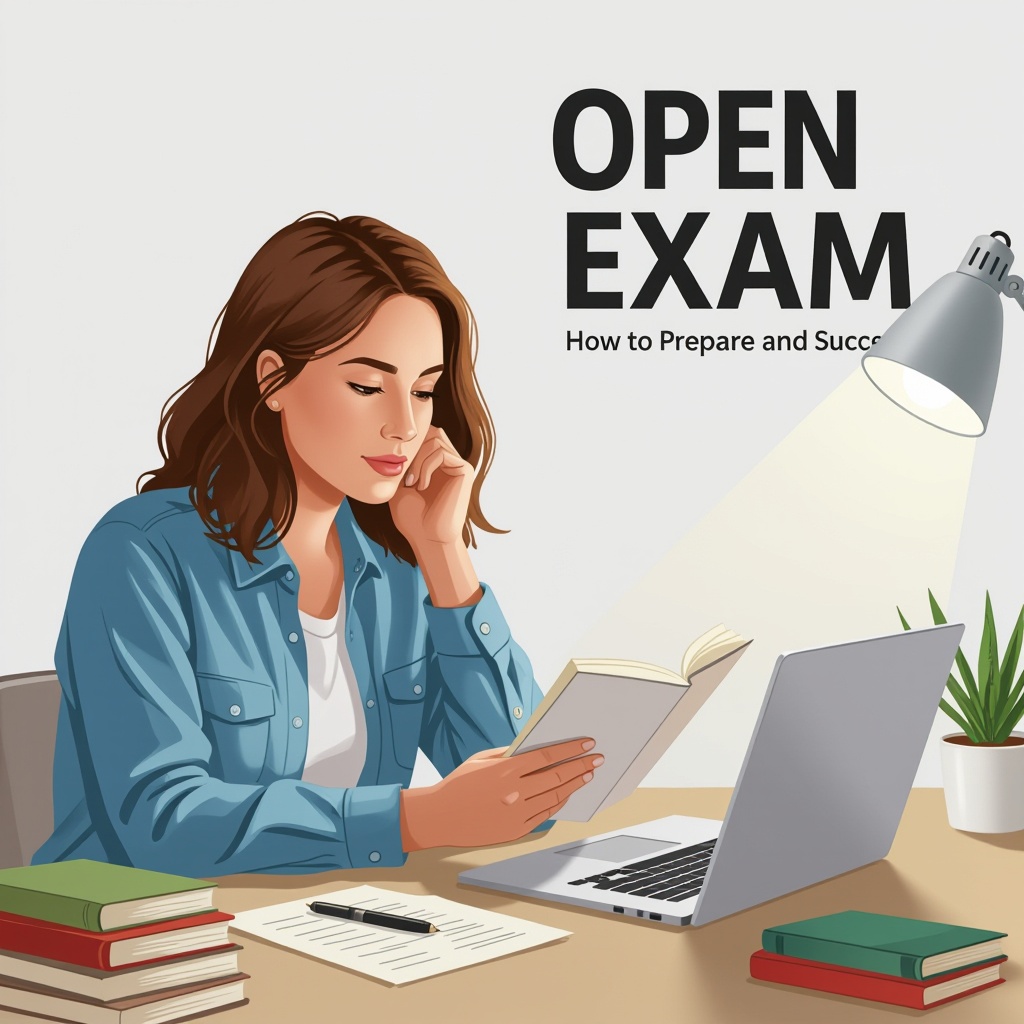Open book exams represent a distinct type of academic challenge that encourages students to harness their analytical and evaluative skills rather than rely solely on rote memorization. These exams require a deeper understanding of the material, compelling students to synthesize and apply their knowledge in innovative ways. By familiarizing themselves with the various formats of open book exams and dispelling any common misconceptions, students can tackle these assessments with increased confidence, ultimately enhancing both their performance and comprehension.
Key Takeaways
- Having a deep understanding of the material is essential. It’s not just about being able to look up information.
- Grasping the format and rules beforehand is crucial for effective preparation.
- Organizing your notes and using mind-mapping techniques can help you quickly identify key themes and concepts during the exam.
- Using reference materials wisely and having a streamlined setup can keep stress and confusion at bay.
- Effective time management and proofreading are critical strategies for succeeding in open book exams.
Mastering Open Book Exams: Strategies for Success
Open book exams let students consult reference materials like textbooks and notes during the test. They’re crafted to prioritize skills like analyzing and evaluating rather than just remembering facts. This assessment approach pushes students to think critically and apply knowledge in practical situations.
Open book exams can appear in different formats. In-person exams usually happen in a classroom with strict rules. Online exams might allow access to digital materials but often come with time limits and other constraints. Take-home versions offer flexibility regarding when you take the exam but may have stricter submission deadlines. Controlled conditions combine aspects of in-person and online formats, often through online proctoring to ensure integrity.
Understanding the rules and expectations of each format is vital. Knowing what resources you can use and any time constraints will help in planning effectively.
Debunking the Myths: What Students Really Think
Many students find open book exams less stressful. A significant 59.69% feel more at ease than with traditional exams (Source: [Article]). Open book formats supposedly align better with students’ comprehension levels, as 55.04% believe these exams accurately mirror their understanding.
However, there’s a misconception about preparation. Despite the relaxed study approach, 85.27% of students report investing less time preparing for open book exams. This may suggest a false sense of security, impacting study habits.
Interestingly, performance doesn’t vary much. Data indicates no significant difference between outcomes in open versus closed book exams. This reinforces that exam type might not dictate success.
Understanding these perspectives helps in crafting appropriate strategies. Whether you’re a student or educator, recognizing these insights is vital for effective exam preparation and execution.

Aligning Expectations: Essential Guidelines for Open Book Exams
First, get a solid grasp on the exam’s scope. Determine which materials you’re allowed to use, such as textbooks, notes, or digital resources. Understand the timing and format. Are you given a fixed window to complete it, or is it self-paced? Pay close attention to academic integrity rules to ensure you stay compliant. It’s wise to seek clarification from your instructors if you’re unclear about any of these aspects. This is the ideal time for such inquiries rather than during the exam. Knowing these details in advance not only boosts your confidence but also refines your study strategy, allowing you to focus on content that truly matters. This preparation is key to a successful open book exam experience.
Preparation Like a Pro: Strategies That Work
You might think open book exams demand little prep, but that’s far from the truth. It’s crucial to have a strong understanding of the material, even if it’s at your fingertips. Start by thoroughly reviewing your course objectives. Knowing what’s expected will guide your focus and help sharpen your study sessions.
Create concise notes and summaries of key points. Avoid transcribing everything. Instead, distill information into digestible bites that highlight crucial themes and ideas. These summaries should act as a roadmap during your exam, allowing you to quickly find the needed information.
Mind-mapping is a powerful technique to see connections clearly. By visually outlining your ideas, you link concepts and integrate information. This method enhances recall and comprehension, crucial for tackling expected exam themes. Your mind maps don’t need to be elaborate works of art. Just grab some paper or use digital tools—whatever helps solidify those connections.
These strategies prevent you from frantically searching through textbooks or notes during the exam. You’ll efficiently access the information you’ve organized. Remember, preparation solidifies understanding and boosts your confidence on exam day.

Efficient Use of Reference Materials
Choosing high-quality reference materials is crucial. Focus on sources that provide clear, concise insights directly related to the exam topics. Select a few trusted materials instead of an overwhelming stack. This approach prevents unnecessary stress and confusion during the exam.
For quick access to valuable information, create an index or detailed outline. This step allows you to quickly locate the needed sections without wasting time. Organize your materials according to topics, using navigation aids like tabs or color-coded labels.
These strategies ensure you have a streamlined, efficient toolkit, helping you focus on applying your knowledge to the exam questions. Picking the right materials and organizing them well significantly enhances your chances of success.

Perfecting the Art of Test-Taking
Prioritize efficient time management by assigning specific durations for each question. Tackle easier questions first to build confidence. When answering, keep responses concise and clear, ensuring they’re directly addressing the question posed. After finishing, always spare a few moments to proofread your work for errors.
Avoid common pitfalls during open book exams. Don’t lean too heavily on your materials. Instead, practice beforehand to familiarize yourself with where information is located for quick referencing. This approach minimizes time wasted during the exam searching for answers.
Sources:
Trent University – Preparing Online Open Book Exam
Cornell University – Studying for and Taking Exams: Open Book Exams
AQI – Open Book Exams: What Does the Evidence Say?
Education Corner – Open-Book Tests
University College London – Preparing for Open Book Assessments
